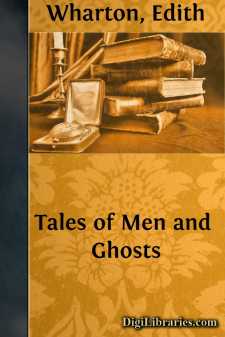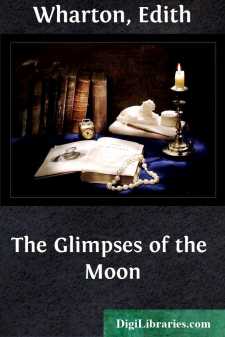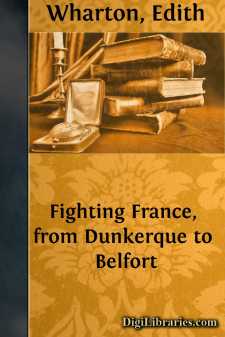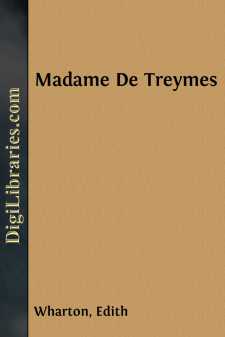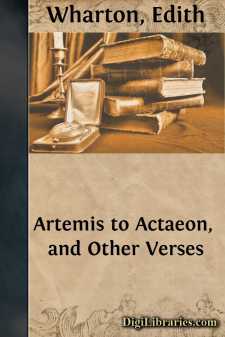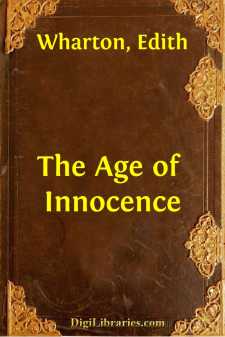Categories
- Antiques & Collectibles 13
- Architecture 36
- Art 48
- Bibles 22
- Biography & Autobiography 815
- Body, Mind & Spirit 144
- Business & Economics 28
- Children's Books 18
- Children's Fiction 14
- Computers 4
- Cooking 94
- Crafts & Hobbies 4
- Drama 346
- Education 58
- Family & Relationships 59
- Fiction 11834
- Games 19
- Gardening 17
- Health & Fitness 34
- History 1378
- House & Home 1
- Humor 147
- Juvenile Fiction 1873
- Juvenile Nonfiction 202
- Language Arts & Disciplines 89
- Law 16
- Literary Collections 686
- Literary Criticism 179
- Mathematics 13
- Medical 41
- Music 40
- Nature 179
- Non-Classifiable 1768
- Performing Arts 7
- Periodicals 1453
- Philosophy 65
- Photography 2
- Poetry 896
- Political Science 203
- Psychology 44
- Reference 154
- Religion 515
- Science 126
- Self-Help 85
- Social Science 83
- Sports & Recreation 34
- Study Aids 3
- Technology & Engineering 59
- Transportation 23
- Travel 463
- True Crime 29
Edith Wharton
Edith Wharton (1862-1937) was an American novelist and short story writer best known for her works exploring the lives and morals of the American upper class, including her Pulitzer Prize-winning novel "The Age of Innocence." Her writing style combined keen social observation with vivid, detailed prose, making her a significant literary figure of the early 20th century. Wharton was also an accomplished designer, traveler, and the first woman to win the Pulitzer Prize for Fiction.
Author's Books:
Sort by:
by:
Edith Wharton
"WHAT'S become of the Daunt Diana? You mean to say you never heard the sequel?" Ringham Finney threw himself back into his chair with the smile of the collector who has a good thing to show. He knew he had a good listener, at any rate. I don't think much of Ringham's snuff-boxes, but his anecdotes are usually worth while. He's a psychologist astray among bibelots, and the...
more...
by:
Edith Wharton
I The village lay under two feet of snow, with drifts at the windy corners. In a sky of iron the points of the Dipper hung like icicles and Orion flashed his cold fires. The moon had set, but the night was so transparent that the white house-fronts between the elms looked gray against the snow, clumps of bushes made black stains on it, and the basement windows of the church sent shafts of yellow light...
more...
by:
Edith Wharton
PART I I IT rose for them—their honey-moon—over the waters of a lake so famed as the scene of romantic raptures that they were rather proud of not having been afraid to choose it as the setting of their own. "It required a total lack of humour, or as great a gift for it as ours, to risk the experiment," Susy Lansing opined, as they hung over the inevitable marble balustrade and watched...
more...
by:
Edith Wharton
"You ought to buy it," said my host; "it's just the place for a solitary-minded devil like you. And it would be rather worth while to own the most romantic house in Brittany. The present people are dead broke, and it's going for a song—you ought to buy it." It was not with the least idea of living up to the character my friend Lanrivain ascribed to me (as a matter of fact,...
more...
by:
Edith Wharton
AUGUST On the 30th of July, 1914, motoring north from Poitiers, we had lunched somewhere by the roadside under apple-trees on the edge of a field. Other fields stretched away on our right and left to a border of woodland and a village steeple. All around was noonday quiet, and the sober disciplined landscape which the traveller's memory is apt to evoke as distinctively French. Sometimes, even to...
more...
by:
Edith Wharton
I John Durham, while he waited for Madame de Malrive to draw on her gloves, stood in the hotel doorway looking out across the Rue de Rivoli at the afternoon brightness of the Tuileries gardens. His European visits were infrequent enough to have kept unimpaired the freshness of his eye, and he was always struck anew by the vast and consummately ordered spectacle of Paris: by its look of having been...
more...
by:
Edith Wharton
Mrs. Lidcote, as the huge menacing mass of New York defined itself far off across the waters, shrank back into her corner of the deck and sat listening with a kind of unreasoning terror to the steady onward drive of the screws. She had set out on the voyage quietly enough,—in what she called her "reasonable" mood,—but the week at sea had given her too much time to think of things and had...
more...
by:
Edith Wharton
I Professor Joslin, who, as our readers are doubtless aware, is engaged in writing the life of Mrs. Aubyn, asks us to state that he will be greatly indebted to any of the famous novelist's friends who will furnish him with information concerning the period previous to her coming to England. Mrs. Aubyn had so few intimate friends, and consequently so few regular correspondents, that letters will be...
more...
by:
Edith Wharton
ARTEMIS TO ACTAEON THOU couldst not look on me and live: so runs The mortal legend—thou that couldst not live Nor look on me (so the divine decree)! That saw'st me in the cloud, the wave, the bough, The clod commoved with April, and the shapes Lurking 'twixt lid and eye-ball in the dark. Mocked I thee not in every guise of life, Hid in girls' eyes, a naiad in...
more...
by:
Edith Wharton
I. On a January evening of the early seventies, Christine Nilsson was singing in Faust at the Academy of Music in New York. Though there was already talk of the erection, in remote metropolitan distances "above the Forties," of a new Opera House which should compete in costliness and splendour with those of the great European capitals, the world of fashion was still content to reassemble every...
more...


